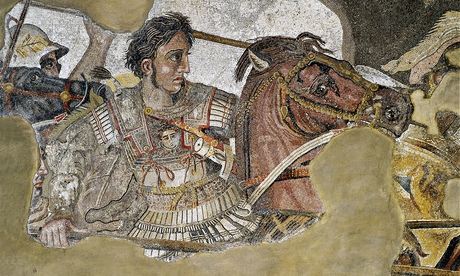
Ballad
Once the social structure has thoroughly been mapped out,
staff should identify and analyze the culture …
COUNTERINSURGENCY (December2006),
Headquarters, Department of the Army
Galloping with his drum, the singer
Rides in a split second over
Plains that outdistance their tympanum sky,
And all by the song’s power.
Ideology gallops the story:
What values spur the teller?
Down a “smoke-hole,” he comes to the shore
Of a cavern-sea to be crossed.
On a bridge the breadth of a hair, he totters
Over the drowned and lost.
Never wrongfoot your informers.
Shield them from retribution.
To appease the netherworld’s vengeful Khan,
He pours a gift of liquor
From the limitless shell of his drum, then softly
Taps out the hetman’s hiccups.
Fa-la for what’s known to PSYOPS:
The psyche’s the theater of war.
To obtain the vital intelligence
That bears on a blessing or cure,
He must wheedle, deceive, and lean on
The chief of a somber empire.
With intel, a counterinsurgent
Can excise the social tumor.
The soul shears free from the body to go
On subterranean missions,
But a mystic geography is sown
With hidden demolitions.
O religions and all –isms
Are types of belief systems.
Because they won’t accept their new mode,
The recently dead are feared,
But, as informants and guardians,
The long dead are revered.
Culture’s the crackable code
That guides all tribes and clans.
Armed with his drum alone, the singer
Projects the power of sound,
Leading those slow to forsake the air
To their gritty new home in the ground.
Heigh-ho for the social skeleton,
Culture’s the muscle on bone.
An outstanding new poetry collection published by the Irish press, Salmon, Interrogating Water and Other Poems is drily described on the author’s website as “poems about aspects of the national security state”. A New York-based American poet with six previous collections behind him, Fried’s work here is more ambitious than it might sound. His new volume is a kind of counter-epic, denouncing through fantasy, parody and other devices a panoply of evils (national expansionism, the nuclear bomb, the “War on Terror”, rendition and torture) while reading them as major moral, cultural, linguistic and indeed biological questions. This collection should be on every English school syllabus – and not only for the valour and vision of its protest. Fried’s thrillingly crafted poetry hauls in language itself for interrogation.
A device he uses with impressive effect is the splice. Original and found text from various sources and in various registers are combined to give many of the poems their unusual positive-negative thrust. The model might be the fission and fusion of the nuclear explosion. It’s what Fried does in this week’s poem, culling an official document on Counterinsurgency (see the epigraph) to detonate a clever, inherently chilling pseudo folk-tale.
Ballad is about the cultural war sometimes nicknamed “hearts and minds”, or, in one of those neutralising acronyms beloved of the military, PSYOPS. It’s presented in the guise of a founding myth, a story of heroic conquest that might belong to the culture under investigation, or to the counterinsurgency itself. A lone horseman gallops across the landscape, with a drum and a song his only weapons. But the medium here is the message, delivered “in a split-second over/ Plains that outdistance their tympanum sky”. It’s the listener’s auditory canal that is invaded in this assault: then, in the second stanza, the horseman seems to descend into the mind’s underworld (“smoke-hole”, “cavern-sea”). The “bridge the breadth of a hair” may allude to the Pons Varolii, a part of the brain-stem that contains cranial nerve nuclei with “sensory roles in hearing, equilibrium and taste, and in facial sensation such as touch and pain …”.
The second line of the first refrain asks the unanswerable moral question whose resistance is at the core of both poem and collection): “What values spur the teller?” The horseman of propaganda gallops on and finds the metaphorical Khan (the ego, the heart?) whom he seduces with liquor, magically contained in his war-drum, and empathy. This “hero” is a conman and tactician (“He must wheedle, deceive and lean on/ The chief of a somber empire”) who mines the psychic landscape of the enemy, and subverts his very “belief-systems”. In the sixth stanza, it seems that the counterinsurgent claws back into the past of the nation he has set out to conquer.
Recent psychic losses, still angrily mourned, may hinder his advance but the ancient icons and ideologies can still be exploited. Nostalgia itself is a source of cultural intelligence. Folksy exclamations like “fa-la” and “heigh-ho” infiltrate the military jargon in several refrains to parody the cultural takeover, and reveal, although their tone is triumphal, that the occupying culture, like the one occupied, has traditional, oral roots of its own. But the poem leaves us with no sense of reconciliation, no intimations of common humanity. Instead, there’s a sharp image of punishment in the “gritty new home in the ground” awaiting “those slow to forsake the air”. Perhaps “the air” represents freedom of thought, the journeys made earlier by the soul across “a mystic geography/ … sown with hidden demolitions”. Ballad makes it clear that power is no less corrosive when its method is psychological. Like other poems in the collection, it reminds us that “The psyche’s the theatre of war”. Our bodily processes, our very cells, are conscripted.

